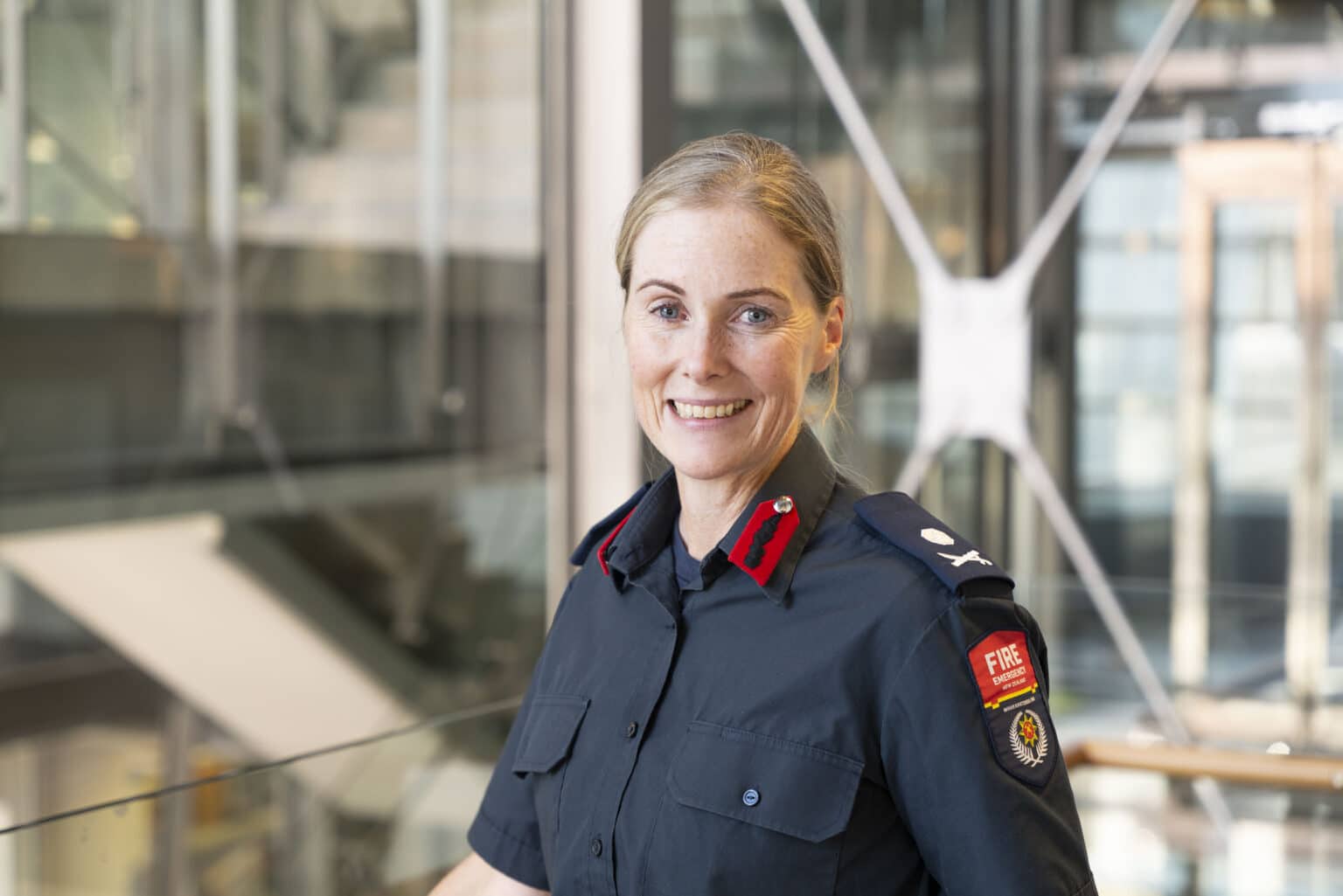IFSJ Influencer Insight: Steph Rotarangi, Deputy National Commander for Fire and Emergency New Zealand
- December 21, 2023
- 11:53 am


Iain Hoey
Share this content
‘If we are truly committed to preventing fire, sometimes we need to take calculated risks.‘
You’re Cooked (slang) inebriated: drunk, high, stoned; or hungover.
Using limited fire service budget to create a cookbook for a satisfying meal after a night out, might seem like a left field idea. Filming intoxicated people making their meals while under the influence is potentially career limiting. We initially thought it was a bad idea too but that’s the point – firefighters aren’t the target audience.
Unattended cooking has remained New Zealand’s leading cause of both house fire and fire related injury, despite years of campaigns and interventions trying to stop the behaviour. For the team at Fire and Emergency New Zealand it was clear that our current messages weren’t resonating with the people they needed to, and we needed to try something different to achieve a reduction in this particularly risky behaviour.
What became apparent through our research was that while over half of the New Zealand population understands the risk of fire and is prepared to take steps to manage this, there are still significant pockets that either don’t see fire safety as a risk or understand the dangers and are still happy to take risks.
Creating initiatives that are disruptive and test the status-quo can be an effective way to create change, however our interventions had to be well informed by evidence and data and tested with the audiences we wanted to influence. Creating a cookbook, filming ‘cooked’ chefs and spending our advertising budget on dating apps was going to draw plenty of attention.
With solid foundational research we looked at creative ways to address the problem of unattended cooking in the hardest group to reach, who we labelled our “disengaged” audience. What we know about this audience is that they’re often younger, seeking a care-free lifestyle and don’t want to be burdened by addressing yet another risk in their already busy lives. We also know that they frequently cook food on the stove following a night out when they might be under the influence of alcohol or drugs or distracted.
For this audience we needed to frame cooking safety with a positive approach to make it relevant and relatable. We shifted focus from stopping them making food, to encouraging them to make food in a safe way that didn’t involve the stove, oven or any other heat source that could create a house fire or injury.
We used a local chef with a cult following to create a collection of recipes brought together in a virtual cookbook, entitled ‘You’re Cooked, Recipes to Avoid Disaster’, featuring a selection of dishes easy (and safe) enough to cook while you’re intoxicated or impaired. Rather than telling the disengaged not to do something, we gave them an alternative, safe behaviour that was just as good.
We then took our mobile kitchen out on the streets late at night, and test drove the recipes with willing participants to create content for our campaign. The campaign has gone on to win numerous awards for not only the creative way it’s addressed a serious fire safety issue, but the results it has achieved. We have had over 14 million impressions, but more importantly it has led to a noticeable drop in the unattended cooking fires our crews are attending. At the time of writing, we have had a 7.5% reduction in the incidence of unattended cooking fires.
If we are truly committed to preventing fire, sometimes we need to take calculated risks. You can find out more about how we use data and insights to drive change at https://www.fireandemergency.nz/yourecooked/
About the IFSJ Influencer
Steph Rotarangi is Deputy National Commander for Fire and Emergency New Zealand. With a background in fire and emergency, Steph has held senior operational roles in both New Zealand and Australia. She is passionate about reducing unwanted fire and believes no-one should be harmed by fire regardless of their circumstances.



